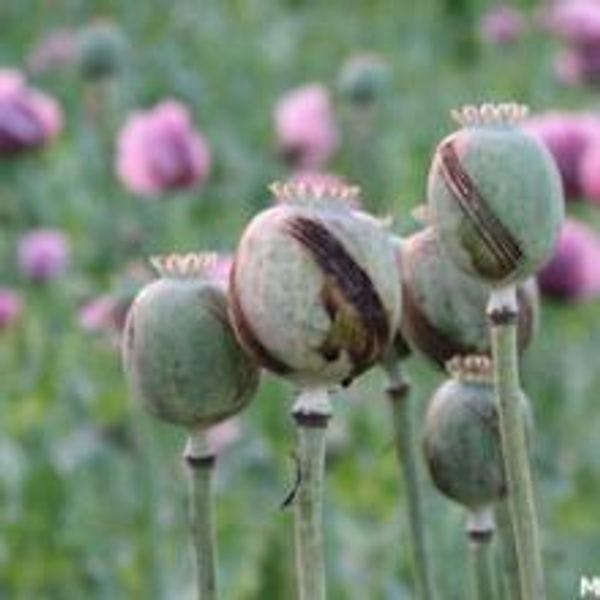Birmania confirma que el problema de las drogas se ha exacerbado
Las autoridades birmanas advierten que el problema de anfetaminas que se vive en el país es “muy peligroso”, tras el decomiso, el pasado julio, de más de 1,4 millones de comprimidos de anfetamina y 116 kilos de heroína.
Más información, en inglés, está disponible abajo.
Suscríbase a las Alertas mensuales del IDPC para recibir información sobre cuestiones relacionadas con políticas sobre drogas.
Burmese authorities are warning that the country's amphetamine problem is “very dangerous” now, after seizing more than 1.4 million amphetamine pills and 116 kilos of heroin in July.
“It's getting worse,” an official told Agency France Press recently. “Although the country has vowed to be drug free by 2014, it can only be opium free because of the problem of stimulant tablets."
Official media on Wednesday reported 342 drug-related cases across the country in July, resulting in 473 suspects arrested.
Most of the stimulant tablets were seized in the eastern border areas, but the drugs are making their way to Rangoon, officials said.
Amphetamine production and poppy cultivation are one source of revenue for some armed rebel groups, say government officials.
Burma is the world's second-largest opium poppy grower after Afghanistan.
Shan state is a major source of methamphetamine tablets, according to the UN, which estimates that global seizures of amphetamine-type stimulants nearly tripled between 1998 and 2010, reflecting fast-growing demand.
In July, Mizzima reported that the UN drug agency said it was “encouraged by the recent cease-fire agreements and the fact that the national authorities have expanded the areas in Shan State in which the UN Office of Drug Control (UNODC) is allowed to work.”
Gary Lewis, the UNODC Bangkok representative, said, “Solve the challenges of chronic poverty, decreasing rural food security, and armed conflict – and you can begin to draw farmers away from poppy.”
Alternative livelihood support is needed if growers are to be weaned off this double-edged source of income, he said.
“To be effective we need to give farming communities alternatives which can provide a sustainable basis for them to earn a livelihood,” said Lewis. “Farmers grow opium poppy to buy food, pay off debt and have a cash income to pay school fees and health expenses.”
UNODC and NGOs have been working with Burmese farmers for the past decade, trying to lure them away from poppy cultivation by providing alternative livelihood solutions, along with improved access to roads, waterways, irrigation, and community health services.
“Until recently, UNODC alternative development assistance, funded by the European Union and the governments of Germany and Japan, was limited to small development projects in just three south Shan townships – wholly inadequate to Shan State and Myanmar's needs for improved infrastructure, markets, schools and sustainable livelihoods,” said Lewis.
More than half a century of internal conflict between government forces and various ethnic and political rebel groups tore the country apart, causing instability and poverty, said UNODC. Cease-fire treaties signed in early 2012 with groups in northern Myanmar, including the Karen National Liberation Army (KNLA) and the Shan State Army-South (SSA-S), have allowed access to areas that were previously unreachable.
An opium survey by UNODC in 2011 pointed out that there has been a marked increase in the area under opium cultivation in Myanmar – from 38,100 hectares in 2010 to 43,600 hectares in 2011 – mostly in Shan State. Yet the government has significantly increased its eradication efforts and a total of 6,124 hectares of opium poppy were destroyed there in 2011, compared to 5,316 hectares eradicated in 2010, the survey noted.
The UNODC estimated that 246,000 households are involved in poppy cultivation in Burma, with 91 per cent of opium cultivation occurring in Shan State, according to an article published on its website in May.
It said that opium poppy eradication is a priority of the Burmese government and recent government campaigns have seen a significant increase in the area of poppy crops destroyed.
However, while serving a drug control goal, “this can have disastrous consequences for poppy-farming households which are generally very poor and often in debt,” said the report. “Many grow poppy simply to buy food and other subsistence needs.”
Done without first developing alternative livelihood options, the widespread eradication of poppy can increase food insecurity as households dependent on income from now-destroyed poppy scramble to find other sources of income to feed their families,” said Jason Eligh, the UNODC country manager.
He said the main drivers behind recent increases in opium poppy cultivation are chronic poverty, decreasing rural food security, and regional insecurity due to armed conflict. In 2011, the UNODC started to implement three new alternative development / sustainable livelihoods and food security projects in southern Shan State. Providing assistance directly to opium-dependent communities on the ground, the projects are funded by the European Union and the Government of Germany.
Temas
Regiones
Perfiles relacionados
- United Nations Office on Drugs and Crime (UNODC)
